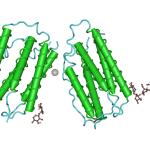Before jumping into Dr. Bastard’s research, we need a few background definitions.
personalized medicine
I was thinking about how the thinkers and the doers came together in medicine’s distant past, and I realized that there was really no distinction between doing and thinking in our origin stories.
I have written in the past on Genome-Wide Association Studies or GWAS. The promise of a more personalized, genetic understanding of disease has made this form of scientific investigation increasingly prominent.
From hospital inpatient “wealth screenings” for potential donors to digital geofencing cell phones in emergency rooms, the erosion of patient privacy is a prominent reality.
For decades the potential of stem cells to cure all disease was promised.
The field of personalized medicine continues to explode.








